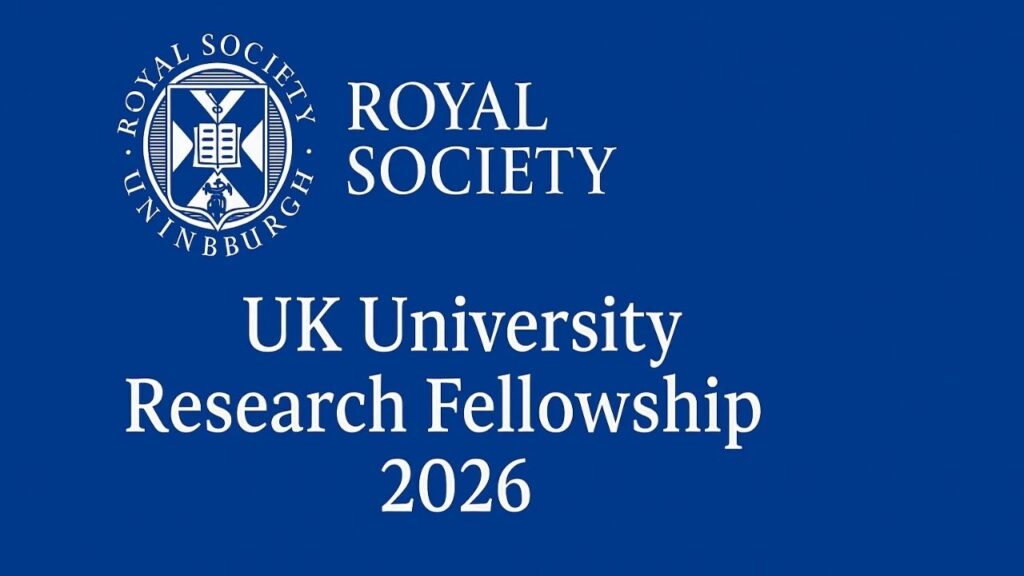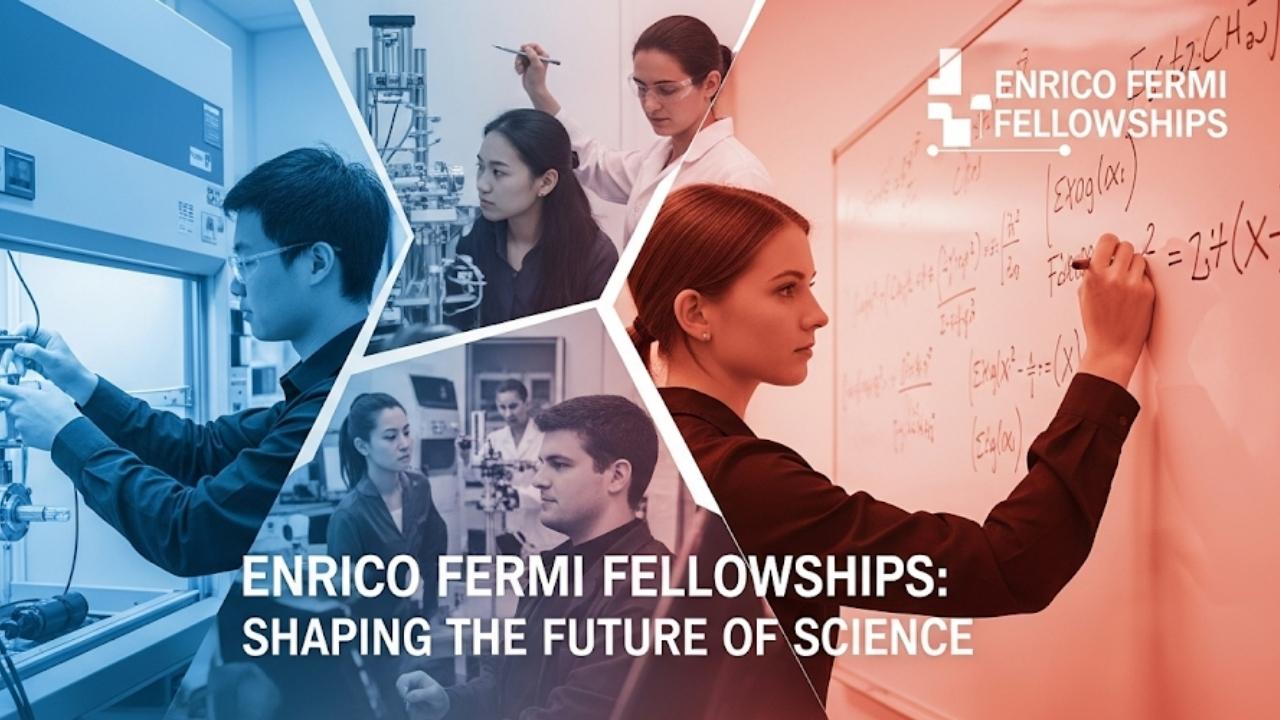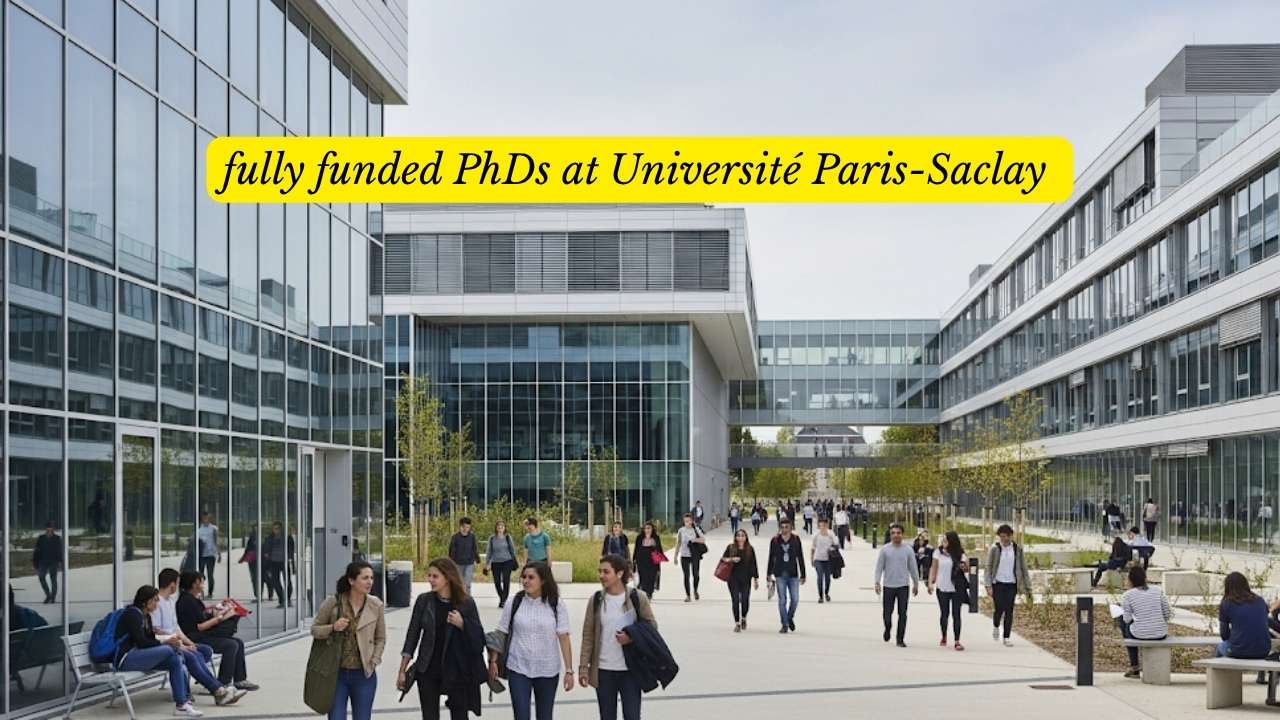Are you an early-career scientist with a groundbreaking research vision, eager to establish your independence and lead the next wave of scientific discovery? Then the Royal Society University Research Fellowship 2026 might just be the career-defining opportunity you’ve been searching for. This prestigious fellowship is designed to empower exceptional researchers, providing the financial backing, intellectual freedom, and robust support needed to build a thriving, independent research career in the UK or Republic of Ireland. In my experience advising aspiring research leaders, the journey to securing such a competitive fellowship can seem daunting, but with the right approach and a clear understanding of the process, it’s an entirely achievable goal. This comprehensive guide will walk you through everything you need to know to navigate the application process successfully.

Royal Society University Research Fellowship 2026
| Key Fact | Detail/Statistic | Source |
| Open Date | 15 July 2025 | Royal Society Official Website |
| Close Date | 10 September 2025 | Royal Society Official Website |
| Decision By | 30 June 2026 | Royal Society Official Website |
| Duration | Up to 8 years (with review at year 4) | Royal Society Official Website |
| Funding Cap | Up to £1.87 million over the full period (as of current info) | Royal Society UK University Research Fellowship 2026: (Deadline 10 September 2025) |
| Eligibility | 3-8 years post-PhD research experience (excluding career breaks), no permanent academic post | Royal Society Official Website |
The Royal Society University Research Fellowship 2026 is more than just a grant; it’s a launchpad for an independent, impactful career in scientific research. The journey requires dedication, a compelling research proposal, strong institutional support, and a confident presentation of your vision. I’ve seen many successful applicants focus on articulating not just what they want to do, but why they are the right person to do it, and how this fellowship will enable them to achieve genuine scientific independence.
Understanding the Royal Society University Research Fellowship
The Royal Society University Research Fellowship (URF) is one of the most prestigious opportunities available to early-career scientists globally. It’s not just about funding a project; it’s about investing in you as a future scientific leader. This fellowship allows you to pursue bold, cutting-edge research with genuine intellectual freedom, develop your own research group, and gain invaluable leadership and communication skills.
Who is the Royal Society University Research Fellowship For?
The URF targets researchers who are poised to make the leap to independent leadership. To be eligible for the Royal Society University Research Fellowship 2026, you should typically have between three and eight years of post-PhD research experience by the closing date of the application round. Crucially, this period excludes any career breaks you may have taken, which the Royal Society carefully considers to ensure a fair assessment.
Furthermore, you should not hold a permanent academic post or an equivalent fellowship that has already granted you independent researcher status. The fellowship is designed to facilitate this transition, not to supplement an already established independent position. Your research must also fall within the Royal Society’s broad remit of natural sciences, encompassing everything from biological and biomedical sciences to chemistry, engineering, mathematics, and physics.

Crafting a Winning Application for the Royal Society University Research Fellowship
The application process for the Royal Society University Research Fellowship is rigorous, designed to identify truly exceptional candidates. It involves several stages, from initial eligibility checks and expert panel assessments to independent peer review and a final interview. Success hinges on a meticulously prepared application that showcases your scientific prowess, your vision, and your potential for independent leadership.
The Power of Your Research Proposal
At the heart of your application is your research proposal. This isn’t just a description of a project; it’s a testament to your scientific vision and your capacity to execute it. When I’ve seen successful applicants, they consistently demonstrate a clear, compelling narrative for their research. Here’s what makes a strong proposal:
- Define Your Big Questions: Clearly articulate the significant scientific questions you aim to address. Why are these questions important, and why now?
- Show Your Approach: Detail how you plan to tackle these questions. What methodologies will you employ? Be specific enough to convince expert reviewers of your technical understanding, while also ensuring the broader implications are clear to non-specialists on the panel.
- Highlight Expected Outcomes and Impact: What do you anticipate discovering? How will your research advance your field, and what wider impact might it have on science, society, or even policy?
- Demonstrate Your Track Record: The proposal isn’t solely about the project; it’s about you. Showcase why you are the ideal person to lead this research. Your past productivity and achievements are crucial indicators of your ability to manage challenges and drive innovative thinking.
- Consider Collaborations: If applicable, include scientific collaborations that will enhance your research and provide additional knowledge or training for you and your group. Explain how your unique expertise contributes to these collaborations.
Remember, your proposal will be read by both experts in your niche field and more general scientists. Aim for a balance of technical depth and broad accessibility. Getting feedback from colleagues both within and outside your specific area can be incredibly valuable in refining your narrative.
Securing Host Organisation Support
A critical component of your application is securing support from a host institution in the UK or Republic of Ireland. The Royal Society provides detailed guidance to host organisations regarding their expectations of support for the applicant. This often includes a statement from the Head of Department, which, from this round onwards, will be visible to applicants. This transparency allows you to ensure alignment between your vision and the institutional support.
Navigating the Assessment and Interview Stages
Once your application is submitted, it undergoes a multi-phase assessment. Following eligibility checks, your application will be initially assessed by a minimum of two panel members with relevant scientific expertise. Longlisted applications then proceed to independent peer review, a crucial step where your proposal is scrutinized by external experts in your field.
Preparing for the Interview
If you are shortlisted, you’ll be invited for an in-person interview at the Royal Society. This is your chance to shine, to articulate the importance and scientific validity of your work, and to demonstrate how the URF will catalyze your scientific independence. I’ve seen many candidates excel by focusing on these key areas during their interview preparation:
- Know Your Project Inside Out: Be prepared to discuss every aspect of your research proposal in detail, from its theoretical underpinnings to your proposed methodologies and expected outcomes.
- Articulate Your Vision: Beyond the specific project, convey your long-term research vision. Where do you see your independent research program heading in the next 5-10 years?
- Demonstrate Independence: The panel wants to see that you are ready to lead. Highlight your unique ideas, your leadership potential, and how this fellowship will enable you to establish your own distinct research identity, separate from your previous supervisors.
- Practice Your Pitch: You’ll likely have a brief time to present your proposal. Practice a concise, compelling pitch that captures the essence of your work, its significance, and your projected impact. Keep it clear and avoid excessive jargon.
- Engage with the Panel: Make eye contact with all panel members, not just the one asking the question. Listen carefully to questions and provide succinct, direct answers. It’s okay to take a moment to formulate your thoughts.
- Mock Interviews are Gold: Conduct several mock interviews with senior colleagues in your department, especially those who have experience with such panels. Encourage them to ask challenging questions to simulate the interview environment.

The Benefits of Becoming a Royal Society University Research Fellow
Beyond the substantial financial support, the Royal Society University Research Fellowship 2026 offers an unparalleled ecosystem for career development. As a fellow, you’ll gain access to:
- Extensive Networking Opportunities: Induction days, annual scientific conferences, and regional network meetings will connect you with a diverse community of leading researchers.
- Comprehensive Training and Career Development: The Royal Society provides a dedicated program designed to help you thrive as an independent research leader. This includes modules on scientific entrepreneurship, science policy, public engagement, and media skills.
- Mentorship Programs: Early-career fellows are often paired with experienced researchers to guide them through the challenges of establishing independence. Programs like SUSTAIN also support female researchers in developing their leadership potential.
- Policy and Public Engagement Opportunities: You’ll have avenues to understand the UK’s policy landscape and contribute to shaping government policy through initiatives like the pairing scheme with UK parliamentarians. There are also regular opportunities to engage the public with your research, from Café Scientifique events to the Summer Science Exhibition.
Propel Your Research Career: A Comprehensive Guide to the Ernest Rutherford Fellowship 2025
Unlock Your Potential: Navigating the Harvard Law School EPLF 2026 Fellowship
FAQs
Q1:What is the typical duration of the Royal Society University Research Fellowship?
The Royal Society University Research Fellowship is typically awarded for up to eight years, with a review conducted at year four. This long-term commitment provides fellows with the stability and time needed to establish a significant independent research program.
Q2:Can I apply for the Royal Society University Research Fellowship if I am not a UK national?
Yes, the Royal Society University Research Fellowship is open to applicants of any nationality. Non-UK applicants requiring a visa are eligible to apply for a Global Talent Visa under a fast-track endorsement process.
Q3:What fields of research are covered by the Royal Society University Research Fellowship?
The Royal Society University Research Fellowship covers all areas of natural sciences. This broadly includes biological research, biomedical sciences, chemistry, engineering, mathematics, and physics. Clinical medicine is typically excluded.
Q4:Is there flexibility for career breaks or personal circumstances during the fellowship?
Yes, the Royal Society explicitly recognizes the importance of diversity and inclusion. They take career breaks into account when assessing eligibility and offer flexible arrangements for personal circumstances such as part-time working, parental leave, extended sick leave, and support for childcare costs related to research travel and conference participation.









